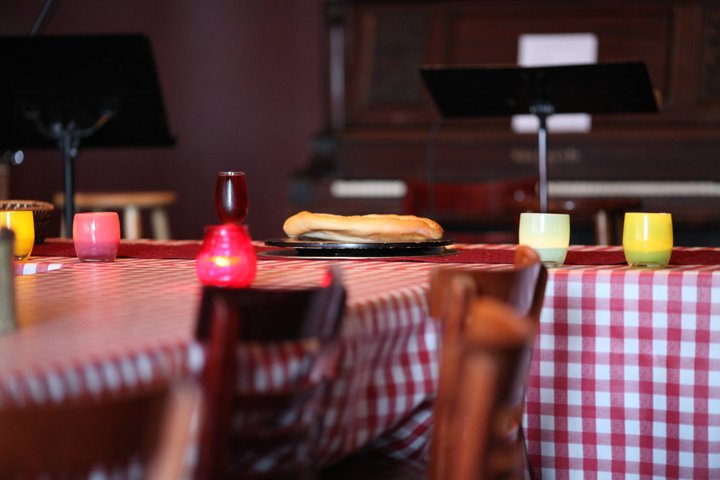 Sunday replay: James 2:18-26
Sunday replay: James 2:18-26
False confidence. It happens in the wilderness of life. Rather than tackling doubts, you suppress them under a thin veneer of confidence. You can sense the insecurity. It comes across in self-righteous legalism or an irreligious bravado that throws out all "doing" in the name of "being."
Paul and James are two apostles who tag-teamed on the Gospel. Paul tackled the legalists. It's one of the reasons his letter focus on justification by faith. James on the other hand honed in on the irreligious. It's why we see his focus on justification by works.
Now don't get confused. They are using "justification" differently. Paul uses it as "acquittal." James uses it in the sense of "proof" or vindication. Both believe that we are justified (acquitted) by a faith which is justified (proved) by works - thus leaving no room in the gospel for legalism or irreligion. Which brings us to the text today. James confronts the latter by talking about two things:
1. What's bad proof? 2. What's good proof?
Bad proof is having correct doctrinal knowledge about God. Even the demons have it - is James' argument. He pokes at the irreligious by telling them how the demons are better in that they at least "shudder" at the truths about God. The irreligious have no fear and no shame.
Good proof is friendship with God - something the demons did not have. They knew everything there is to know about God, including His compassionate and merciful acts. But they did not find any of it lovely. They did not find God lovely enough to seek friendship with Him.
But Abraham did. And so did Rahab the prostitute. Interesting examples from complete opposite ends of the socio-economic spectrum. And yet both put what was most dear to them on the line, entrusting it to Him without qualification or reservation.
How were they able to do this? They found God more lovely. Not more useful. Friends are not sought for their utility but for their loveliness.
And the gospel tells us this: God put what was most dear to Him on the line, entrusting his Son to us - knowing that He might be slain? No. He did so knowing that he would be slain. And why did he do that? Is it because we were lovely? No. We were yet sinners. The gospel truth is that His act makes us lovely - more loved than we can dare to hope for despite being more sinful than we can dare to imagine.
Such knowledge ought to give us courage to confront our doubts and fears, rather than suppress them, and have real confidence.